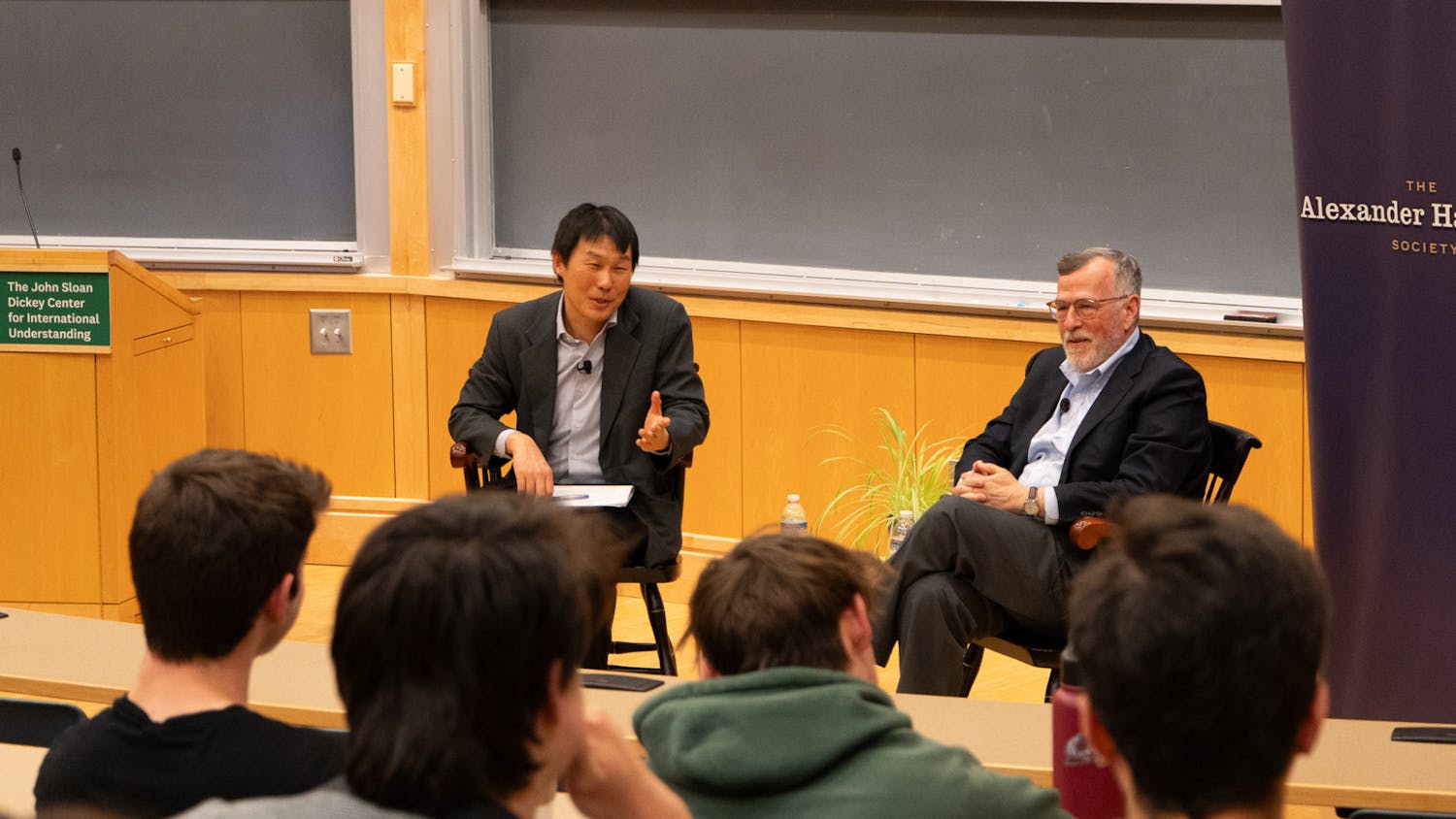On Oct. 9, former chair of the Federal Deposit Insurance Corporation Sheila Bair spoke with former undersecretary of the Treasury and current Tuck Business School professor Peter Fisher as part of a public lecture entitled “Ten Year Anniversary of the Financial Crisis,” sponsored by the Rockefeller Center for Public Policy.
Bair served as chair of the FDIC from 2006 until 2011, leading it through the financial crisis of 2008, which many economists regard to be the worst financial crisis since the Great Depression. She has twice been named by Forbes Magazine the second most powerful woman in the world and has served as a legal counsel to Senator Bob Dole, assistant secretary for financial institutions at the U.S. Treasury, senior vice president of government relations for the New York Stock Exchange and dean of financial regulatory policy at the University of Massachusetts at Amherst. Bair also ran for Congress in her home district — Kansas’s fifth congressional district — as a Republican in 1990, losing by “less than one percent of the vote,” according to Bair.
Before launching into their conversation, Bair noted that she had actually met Fisher while working at the Treasury together in 2001. He added that even in 2001, six years prior to the crisis, Bair was concerned about consumer accruement of debt by taking out too many loans.
In an interview with The Dartmouth, Bair said that immediately when she started at the FDIC, it became apparent that the market was taking a turn.
“I was quite terrified when we saw how bad it was, very low on what we call loan to value ratios,” she said.
Bair said that while leading the FDIC during the crisis was challenging, she is proud of the difference she and others made.
“I’m glad we could make a contribution,” she said. “We had well over 400 bank failures when I was there, and we handled all those very smoothly. There’s a lot of confidence in FDIC insurance. When somebody’s bank failed, we could almost always immediately sell it to a healthy bank.”
Audience member Marisa Stancroff ’21 said that listening to Bair speak reminded her of “the complexity of what really happened in 2008.” She added that while she attended the event because she is pursuing an economics major, she ended up learning more than she anticipated.
Bair added that while she is proud of the work the FDIC did at that time, she regretted that they could not provide relief to more homeowners than they did.
“We pushed hard and we saved several hundred thousand homes. And I’m proud of that. But we should have been saving millions and we just didn’t do enough,” Bair said.
Responding to a question from the audience during her lecture, Bair reflected on her time mitigating the financial crisis. A lesson to take away from the recession was that the younger generation should not rely on monetary policy to increase economic growth, allowing big banks’ bad behavior to continue on through bailouts, she added.
Since working at the FDIC, Bair has served as president of Washington College in Chestertown, Maryland from 2015 to 2017. She has also published two New York Times bestsellers: her memoir of the crisis, entitled “Bull by the Horns: Fighting to Save Main Street from Wall Street and Wall Street from Itself,” and a young adult novel about the crisis, entitled “Bullies of Wall Street.”
She noted that educating young people, and students especially, about finance and the significance of taking out debt is of particular interest to her, and that she hoped to get feedback from Dartmouth students on the issue of student debt.
“We initiated a lot of scholarship programs and affordability programs at Washington College while I was there and they’ve kept these programs and I’m still engaged with them,” Bair said. “I helped them raise money for some of those programs, so that was rewarding.”
Bair said that she hopes young people will become better educated about debt in a larger context, adding that the fiscal debt we accumulate is growing to be a problem. She said that she is currently focusing on student debt issues, working to provide better resources and tools to help students understand how debt and its obligations work.
“I hate the fact that the government calls student loans financial aid, because it’s not financial aid,” Bair said. “It’s a loan. You’re going to have to pay it back, right? It’s a financial obligation.”
According to Bair, educating the younger generation about finance and the issue of debt is essential to the prevention of a “repeat” of the 2008 crisis, which she noted was “avoidable and foreseeable.”
Jasmine Lee ’19, an audience member at the discussion, said she “thought the event was an opportunity to learn more about the crisis from an expert in her field.”
She added that, as a government major, she particularly valued listening to Bair speak about her time at the FDIC because “policy in economics is much not as visible to the public.”



